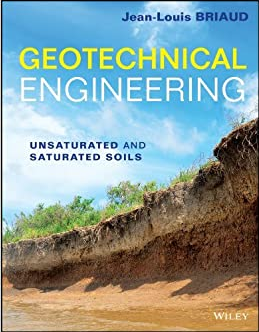2011م - 1444هـ
his book provides methods to train process operators to solve challenging problems. The book is split into two parts. The first part consists of two parts; first developing a daily monitoring system and second providing a structured 5 step problem solving approach that combines cause and effect problem solving thinking with the formulation of theoretically correct hypotheses. The 5 step approach emphasizes the classical problem solving approach (defining the sequence of events) with the addition of the steps of formulating a theoretically correct working hypothesis, providing a means to test the hypothesis, and providing a foolproof means to eliminate the problem. The initial part of the book focuses on defining the problem that must be solved and obtaining the location, time and quantity based specifications of the problem. This part of the book also presents techniques to find and define problems at an early point before they progress to the critical level.
يوفر هذا الكتاب طرقًا لتدريب مشغلي العمليات على حل المشكلات الصعبة. ينقسم الكتاب إلى قسمين. يتكون الجزء الأول من جزأين ؛ أولاً تطوير نظام مراقبة يومي وثانيًا تقديم منهج منظم لحل المشكلات من 5 خطوات يجمع بين التفكير في حل المشكلات والسبب في ذلك مع صياغة الفرضيات الصحيحة نظريًا. يركز نهج الخطوات الخمس على نهج حل المشكلات الكلاسيكي (تحديد تسلسل الأحداث) مع إضافة خطوات صياغة فرضية عمل صحيحة نظريًا ، وتوفير وسيلة لاختبار الفرضية ، وتوفير وسيلة مضمونة للقضاء على المشكلة. يركز الجزء الأول من الكتاب على تحديد المشكلة التي يجب حلها والحصول على مواصفات المشكلة من حيث الموقع والوقت والكمية. يقدم هذا الجزء من الكتاب أيضًا تقنيات للعثور على المشاكل وتحديدها في مرحلة مبكرة قبل أن تتقدم إلى المستوى الحاسم.
The second part of the book deals with the utilization of fundamental chemical engineering skills to develop a technically correct working hypothesis that is the key to successful problem solving. The primary emphasis is on simple pragmatic calculation techniques that are theoretically correct. It is believed that any operator can perform these calculations if he is provided the correct prototype. Throughout the book, the theory behind each pragmatic calculation technique is explained in understandable terms prior to presenting the author's approach. These techniques have been developed by the author in 50+ years of industrial experience. The book includes many sample problems and examples of real world problem solving. Using these techniques, theoretically correct working hypotheses can be developed in an expedient fashion.
ويتناول الجزء الثاني من الكتاب استخدام مهارات الهندسة الكيميائية الأساسية لتطوير فرضية عمل صحيحة تقنياً هي مفتاح حل المشكلات بنجاح. ينصب التركيز الأساسي على تقنيات الحساب البراغماتية البسيطة الصحيحة نظريًا. ويعتقد أن أي عامل يمكنه إجراء هذه الحسابات إذا تم تزويده بالنموذج الأولي الصحيح. طوال الكتاب ، يتم شرح النظرية الكامنة وراء كل تقنية حسابية عملية بعبارات مفهومة قبل تقديم نهج المؤلف. تم تطوير هذه التقنيات من قبل المؤلف في أكثر من 50 عامًا من الخبرة الصناعية. يتضمن الكتاب العديد من نماذج المشكلات وأمثلة على حل المشكلات في العالم الحقيقي. باستخدام هذه التقنيات ، يمكن تطوير فرضيات العمل الصحيحة من الناحية النظرية بطريقة مناسبة.
Process Engineering, the science and art of transforming raw materials and energy into a vast array of commercial materials, was conceived at the end of the 19th Century. Its history in the role of the Process Industries has been quite honorable, and techniques and products have contributed to improve health, welfare and quality of life. Today, industrial enterprises, which are still a major source of wealth, have to deal with new challenges in a global world. They need to reconsider their strategy taking into account environmental constraints, social requirements, profit, competition, and resource depletion.
“Systems thinking” is a prerequisite from process development at the lab level to good project management. New manufacturing concepts have to be considered, taking into account LCA, supply chain management, recycling, plant flexibility, continuous development, process intensification and innovation.
تم تصميم هندسة العمليات ، علم وفن تحويل المواد الخام والطاقة إلى مجموعة واسعة من المواد التجارية ، في نهاية القرن التاسع عشر. تاريخها في دور الصناعات التحويلية كان مشرفًا للغاية ، وأسهمت التقنيات والمنتجات في تحسين الصحة والرفاهية ونوعية الحياة. واليوم ، يتعين على الشركات الصناعية ، التي لا تزال مصدرًا رئيسيًا للثروة ، أن تتعامل مع التحديات الجديدة في عالم عالمي. إنهم بحاجة إلى إعادة النظر في استراتيجيتهم مع مراعاة القيود البيئية والمتطلبات الاجتماعية والربح والمنافسة واستنفاد الموارد.
يعد "التفكير المنظوماتي" شرطًا أساسيًا من تطوير العملية على مستوى المختبر إلى الإدارة الجيدة للمشروعات. يجب النظر في مفاهيم التصنيع الجديدة ، مع مراعاة تقييم دورة الحياة ، وإدارة سلسلة التوريد ، وإعادة التدوير ، ومرونة المصنع ، والتطوير المستمر ، وتكثيف العمليات والابتكار.
his book provides methods to train process operators to solve challenging problems. The book is split into two parts. The first part consists of two parts; first developing a daily monitoring system and second providing a structured 5 step problem solving approach that combines cause and effect problem solving thinking with the formulation of theoretically correct hypotheses. The 5 step approach emphasizes the classical problem solving approach (defining the sequence of events) with the addition of the steps of formulating a theoretically correct working hypothesis, providing a means to test the hypothesis, and providing a foolproof means to eliminate the problem. The initial part of the book focuses on defining the problem that must be solved and obtaining the location, time and quantity based specifications of the problem. This part of the book also presents techniques to find and define problems at an early point before they progress to the critical level.
يوفر هذا الكتاب طرقًا لتدريب مشغلي العمليات على حل المشكلات الصعبة. ينقسم الكتاب إلى قسمين. يتكون الجزء الأول من جزأين ؛ أولاً تطوير نظام مراقبة يومي وثانيًا تقديم منهج منظم لحل المشكلات من 5 خطوات يجمع بين التفكير في حل المشكلات والسبب في ذلك مع صياغة الفرضيات الصحيحة نظريًا. يركز نهج الخطوات الخمس على نهج حل المشكلات الكلاسيكي (تحديد تسلسل الأحداث) مع إضافة خطوات صياغة فرضية عمل صحيحة نظريًا ، وتوفير وسيلة لاختبار الفرضية ، وتوفير وسيلة مضمونة للقضاء على المشكلة. يركز الجزء الأول من الكتاب على تحديد المشكلة التي يجب حلها والحصول على مواصفات المشكلة من حيث الموقع والوقت والكمية. يقدم هذا الجزء من الكتاب أيضًا تقنيات للعثور على المشاكل وتحديدها في مرحلة مبكرة قبل أن تتقدم إلى المستوى الحاسم.
The second part of the book deals with the utilization of fundamental chemical engineering skills to develop a technically correct working hypothesis that is the key to successful problem solving. The primary emphasis is on simple pragmatic calculation techniques that are theoretically correct. It is believed that any operator can perform these calculations if he is provided the correct prototype. Throughout the book, the theory behind each pragmatic calculation technique is explained in understandable terms prior to presenting the author's approach. These techniques have been developed by the author in 50+ years of industrial experience. The book includes many sample problems and examples of real world problem solving. Using these techniques, theoretically correct working hypotheses can be developed in an expedient fashion.
ويتناول الجزء الثاني من الكتاب استخدام مهارات الهندسة الكيميائية الأساسية لتطوير فرضية عمل صحيحة تقنياً هي مفتاح حل المشكلات بنجاح. ينصب التركيز الأساسي على تقنيات الحساب البراغماتية البسيطة الصحيحة نظريًا. ويعتقد أن أي عامل يمكنه إجراء هذه الحسابات إذا تم تزويده بالنموذج الأولي الصحيح. طوال الكتاب ، يتم شرح النظرية الكامنة وراء كل تقنية حسابية عملية بعبارات مفهومة قبل تقديم نهج المؤلف. تم تطوير هذه التقنيات من قبل المؤلف في أكثر من 50 عامًا من الخبرة الصناعية. يتضمن الكتاب العديد من نماذج المشكلات وأمثلة على حل المشكلات في العالم الحقيقي. باستخدام هذه التقنيات ، يمكن تطوير فرضيات العمل الصحيحة من الناحية النظرية بطريقة مناسبة.
Process Engineering, the science and art of transforming raw materials and energy into a vast array of commercial materials, was conceived at the end of the 19th Century. Its history in the role of the Process Industries has been quite honorable, and techniques and products have contributed to improve health, welfare and quality of life. Today, industrial enterprises, which are still a major source of wealth, have to deal with new challenges in a global world. They need to reconsider their strategy taking into account environmental constraints, social requirements, profit, competition, and resource depletion.
“Systems thinking” is a prerequisite from process development at the lab level to good project management. New manufacturing concepts have to be considered, taking into account LCA, supply chain management, recycling, plant flexibility, continuous development, process intensification and innovation.
تم تصميم هندسة العمليات ، علم وفن تحويل المواد الخام والطاقة إلى مجموعة واسعة من المواد التجارية ، في نهاية القرن التاسع عشر. تاريخها في دور الصناعات التحويلية كان مشرفًا للغاية ، وأسهمت التقنيات والمنتجات في تحسين الصحة والرفاهية ونوعية الحياة. واليوم ، يتعين على الشركات الصناعية ، التي لا تزال مصدرًا رئيسيًا للثروة ، أن تتعامل مع التحديات الجديدة في عالم عالمي. إنهم بحاجة إلى إعادة النظر في استراتيجيتهم مع مراعاة القيود البيئية والمتطلبات الاجتماعية والربح والمنافسة واستنفاد الموارد.
يعد "التفكير المنظوماتي" شرطًا أساسيًا من تطوير العملية على مستوى المختبر إلى الإدارة الجيدة للمشروعات. يجب النظر في مفاهيم التصنيع الجديدة ، مع مراعاة تقييم دورة الحياة ، وإدارة سلسلة التوريد ، وإعادة التدوير ، ومرونة المصنع ، والتطوير المستمر ، وتكثيف العمليات والابتكار.
يمكنك الاستمتاع بقراءة كتاب
Problem Solving for Process Operators and Specialists : Chapter 2
اونلاين وعلى الموقع الخاص بنا من خلال الضغط على زر قراءة بالاسفل
كتاب Problem Solving for Process Operators and Specialists : Chapter 2 يمكنك تحميله من خلال الدخول الى صفحه التحميل من
صفحة تحميل كتاب Problem Solving for Process Operators and Specialists : Chapter 2 PDF
او يمكنك التحميل المباشر من خلال الضغط

بعض الكتب المشابهة لـ Problem Solving for Process Operators and Specialists : Chapter 2



